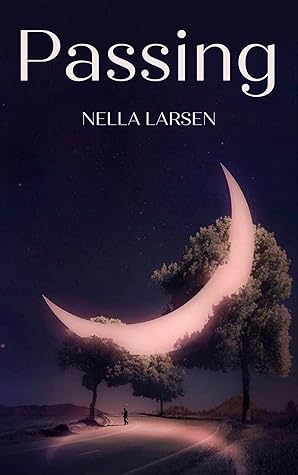More on this book
Community
Kindle Notes & Highlights
She wished to find out about this hazardous business of “passing,” this breaking away from all that was familiar and friendly to take one’s chance in another environment, not entirely strange, perhaps, but certainly not entirely friendly. What, for example, one did about background, how one accounted for oneself. And how one felt when one came into contact with other Negroes. But she couldn’t. She was unable to think of a single question that in its context or its phrasing was not too frankly curious, if not actually impertinent.
“You know, ’Rene, I’ve often wondered why more colored girls, girls like you and Margaret Hammer and Esther Dawson and—oh, lots of others—never ‘passed’ over. It’s such a frightfully easy thing to do. If one’s the type, all that’s needed is a little nerve.”
“Have you ever stopped to think, Clare,” Irene demanded, “how much unhappiness and downright cruelty are laid to the loving-kindness of the Lord? And always by His most ardent followers, it seems.”
Later, when she examined her feeling of annoyance, Irene admitted, a shade reluctantly, that it arose from a feeling of being outnumbered, a sense of aloneness, in her adherence to her own class and kind; not merely in the great thing of marriage, but in the whole pattern of her life as well.
I nearly died of terror the whole nine months before Margery was born for fear that she might be dark. Thank goodness, she turned out all right. But I’ll never risk it again. Never!
choosing, Clare hadn’t precisely reckoned the cost, she had, nevertheless, no right to expect others to help make up the reckoning. The trouble with Clare was not only that she wanted to have her cake and eat it too but that she wanted to nibble at the cakes of other folk as well.
Irene Redfield found it hard to sympathize with this new tenderness, this avowed yearning of Clare’s for “my own people.”
Why, simply because of Clare Kendry, who had exposed her to such torment, had she failed to take up the defense of the race to which she belonged?
She said: “It’s funny about ‘passing.’ We disapprove of it and at the same time condone it. It excites our contempt and yet we rather admire it. We shy away from it with an odd kind of revulsion, but we protect it.” “Instinct of the race to survive and expand.”
But Clare—she had remained almost what she had always been, an attractive, somewhat lonely child—selfish, willful, and disturbing.


